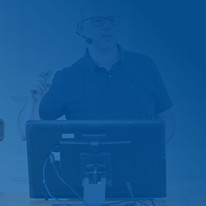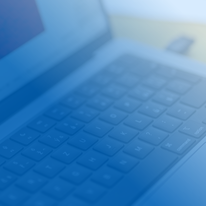
BACK UP YOUR DATA
Why?
Backing up your data is necessary not only in case you lose your device (and this can happen more easily than you think) but also to prevent ransomware attacks in which attackers encrypt your data and demand a very high ransom for accessing it.
How to do this?
It is important to back up your data regularly and keep your data backup separate from your device, ideally offline, so that it is not compromised in the event of a cyber attack.

THINK BEFORE YOU CLICK
Why?
Not every link is what it pretends to be. Dangerous links not only lead to websites with fake logins to services such as online banking, but they can also trigger a computer virus download.
How to do it?
Pay attention to the website address of the link and whether it really matches the address of the service you want to use (e.g. your online banking service). Also, check the content of the website you clicked on – errors, partial malfunctions and other inconsistencies are warning signs. The same principles apply to links in emails.

DON’T TELL ANYONE YOUR PASSWORDS
Why?
Attackers often impersonate government officials, bank employees, or people in distress. They have a lot of practice in manipulating people and often try to scare you (your account has been hacked, you owe money, etc.) hoping that in your panic you will forget your security policies.
How to do this?
The fact that someone is asking for your access details is already a warning sign, as this is not common practice. So don’t provide your passwords to anyone over the phone and if you are unsure whether you are talking to a scammer, hang up and contact the institution or person using official contact details.

CHECK THE VALIDITY OF THE CERTIFICATE
Why?
A digital certificate provides secure encrypted communication between the server and the client.
How to do it?
First of all, not every website encrypted by HTTPS protocol is secure. Check the validity and the issuer of the certificate. If the website is not using a secure protocol, do not input any sensitive data.

UPDATE
Why?
Hackers are constantly developing new malicious codes that target software vulnerabilities. Software companies therefore release updates to eliminate these vulnerabilities, while antivirus companies constantly update their database to correctly identify the latest threats.
How to do this?
Update not only your antivirus program regularly, but also your operating system and other software.

USE STRONG PASSWORDS
Why?
Passwords are traditionally one of the weakest security points. This is due to the natural human tendency to simplify things. We tend to use the same password or the ones that are easy to remember. However, such passwords are easy to either guess directly or break with a dictionary attack.
How to do it?
Use passwords that are long enough to combine different types of characters (upper and lower case letters, numbers, special characters) and that are not easy to guess (do not use the name of a pet or children, etc.). Never store passwords in a browser and use two-factor authentication where possible. Also change passwords regularly.

SEPARATE YOUR WORK FROM YOUR PRIVATE LIFE
Why?
Fewer emails make it easier to spot potential risks, while not giving attackers the opportunity to learn information about you that they could use to gain your trust or break your passwords.
How to do it?
Use work emails, and other communication channels exclusively for work. Never use them to sign up for consumer contests, discussion forums or social networking sites. These are platforms that can be used to get information about you that can be misused. Even in your private life, be careful what information you disclose about yourself. If you are forced to communicate about work matters via less secure apps like WhatsApp, never give sensitive or detailed information.